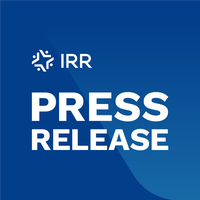
In a recent briefing to Parliament the Auditor-General came to the same conclusion as the IRR – the government simply cannot control its spending.
The Auditor-General was briefing MPs on the latest Material Irregularities in Local Government report of 2021/2022 in which municipalities posted a whopping R5.19bn in financial losses.
Put into perspective, this is the rough equivalent of paying for 40 000 NSFAS students; or building two of eThekwini’s Dr Pixley ka Isaka Seme regional hospitals, or even fixing the entire ‘sewage lake’ that has formed outside Kimberley, all with some change left.
The Auditor-General reported that the losses were incurred in the procurement of goods and services paid for but not received; unfair and uncompetitive practices, and paying consultants R1.6bn (or 35% of the municipal finance staff wage bill) to do the same job staff had already been hired to do.
Government’s inability to manage taxes competently and efficiently is a core focus of the IRR’s current campaign to put pressure on the government to reduce spending and start using taxpayers’ money efficiently. The Auditor-General’s latest remarks confirm the IRR’s position that government has lost control of its revenue and should be compelled to exercise discipline in using fewer financial resources to maintain adequate levels of service delivery.
The Auditor-General also reports that losses incurred were not limited to municipal finances and the abstractions of accounting, but impinged directly on public health in the case of 29 instances of polluted discharges into water resources as well as poor management of landfill sites.
Moreover, the Auditor-General notes that these material irregularities, though many, are representative only of the sampled municipalities of some 170 out of the total 257 municipalities countrywide.
The Auditor-General joins the IRR and Chief Justice Zondo in bemoaning the lack of value-for-money procurement in government, but also specifically draws attention to deficiencies in oversight at local government level.
National Treasury should heed the IRR’s call to cut VAT from 15% to 11.5% for the two-fold benefit of disciplining government spending by reducing the resources available to it, and of relieving the excessive financial pressure that weighs the public down, freeing people to spend the money as they choose. The added benefit of increasing the public’s spending power by reducing VAT is that it will stimulate growth by increasing consumer spending and driving prices of goods and services down. Growth will also be triggered where government runs public finances capably, minimising losses (from fruitless and wasteful expenditure) and maximising value-for-money in public procurement.
Media contact: Makone Maja, IRR Campaign Manager Tel: 079 418 6676 Email: makone@irr.org.za
Media enquiries: Michael Morris Tel: 066 302 1968 Email: michael@irr.org.za
Sinalo Thuku, Tel: 073 932 8506 Email: sinalo@irr.org.za
 LETTER | Rethinking BEE premiums could unlock billions for growth - Business Day
Feb 19, 2026
LETTER | Rethinking BEE premiums could unlock billions for growth - Business Day
Feb 19, 2026
 IRR’s 2026 Budget tips for Minister Godongwana
Feb 19, 2026
IRR’s 2026 Budget tips for Minister Godongwana
Feb 19, 2026
 Corruption-busting must begin with next week’s Budget – IRR
Feb 18, 2026
Corruption-busting must begin with next week’s Budget – IRR
Feb 18, 2026
 Hold Ramaphosa to account for his SONA admissions of failure, IRR urges MPs
Feb 17, 2026
Hold Ramaphosa to account for his SONA admissions of failure, IRR urges MPs
Feb 17, 2026
 Corrigan pt. II: FMD crisis — How did we get to this point? - Biznews
Feb 16, 2026
Corrigan pt. II: FMD crisis — How did we get to this point? - Biznews
Feb 16, 2026

 LETTER | Rethinking BEE premiums could unlock billions for growth - Business Day
Feb 19, 2026
LETTER | Rethinking BEE premiums could unlock billions for growth - Business Day
Feb 19, 2026
 IRR’s 2026 Budget tips for Minister Godongwana
Feb 19, 2026
IRR’s 2026 Budget tips for Minister Godongwana
Feb 19, 2026
 Corruption-busting must begin with next week’s Budget – IRR
Feb 18, 2026
Corruption-busting must begin with next week’s Budget – IRR
Feb 18, 2026
 Hold Ramaphosa to account for his SONA admissions of failure, IRR urges MPs
Feb 17, 2026
Hold Ramaphosa to account for his SONA admissions of failure, IRR urges MPs
Feb 17, 2026
 Corrigan pt. II: FMD crisis — How did we get to this point? - Biznews
Feb 16, 2026
Corrigan pt. II: FMD crisis — How did we get to this point? - Biznews
Feb 16, 2026